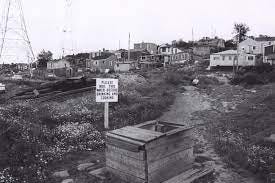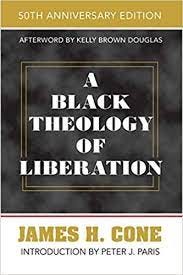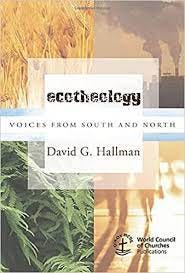Preparing for Lent, and Environmental Racism in Africville
Today is Shrove Tuesday, the day before Ash Wednesday and the season of Lent. The day when we like to eat pancakes with syrup and feast before a time of fasting and self-reflection. We will be enjoying a pancake supper here at home (my chore of meal planning just got really easy!) and talking about the history of “Pancake Tuesday”. We will also talk about Lent. I don’t usually talk about giving something up with my kids; I find that, unless it is done in an intentionally prayerful way, the meaning of ‘giving something up’ can be lost, and I prefer to simply have conversations about what this season means, and what we are preparing for.
Having said that, is there something that you are giving up for Lent? Do you traditionally give up a favourite food, or alcohol? Are you going to be fasting from social media this year? Lent is meant to be a time for self-reflection and soul-searching, as we prepare for the Passion of Christ. We are meant to ready ourselves, let go of what is no longer serving us in our relationships with God, others, and ourselves, and seek out a new way that we are to live in response to what happens to Jesus.
As we pray, listen and discern this Lent, we may hear another voice calling, crying from the wilderness. This is the voice of the planet; the voice of the climate system and the flora and fauna of the Earth community. It is the voice of environmental refugees and polluted waters and air. It is the voice of a devastated Earth, crying out to us to repent, to change our ways, to turn away from consumerism, fossil fuel use, and the status quo, and to turn toward repair and healing, turn toward new ways of living that are aligned with the watersheds we live in, with the ecosystems that form a web of life on this planet.
I invite you, then, to spend this Lenten season searching your soul, reflecting on yourself and your relationships with God, other people, and the Earth community, and discern what needs to change for you. As we begin the walk to Holy Week, let us walk together, making prayerful commitments to Earth healing, to changing ourselves and living out that change in the world. May it be so.
Learning about Black History: Africville
My personal learning continues during Black History Month. I purchased the book A Black Theology of Liberation by James H. Cone last week, and have started reading it (see more below). I had read parts of it before, and have provided an overview of Black theology in classes that I teach, but I haven’t read Dr. Cone’s work in depth. It is past time.
As well, I have been learning more about Africville, Nova Scotia. In reading up on the history of this historic Black settlement near Halifax, I have been struck by the intertwined correlation between racism and environmental justice from the very beginning.
For those who are not familiar, Africville was a village on the outskirts of Halifax, on the south shore of the Bedford Basin, a large enclosed bay. While earliest records record settlement in the area in 1761, it was in the mid-19th century that the village was established. In 1849, the Seaview African United Baptist church opened, and quickly became the centre of life in Africville. Residents were baptized right in the living waters of the Bedford Basin. Africville was demolished by the municipal government in the mid-1960s.
While residents in Africville paid taxes to the City of Halifax, there were very few services for them provided by the city. Not only that, but from early days part of the racism that they experienced was manifested in the building of a railway extension right through the village, bringing the danger of speeding trains, and the pollution caused by the trains. As well, services deemed too undesirable to place in white communities were located in Africville, including a fertilizer plant, slaughterhouses, “night-soil disposal pits” of human waste, and more.[1] Although plans to have Africville zoned as industrial land were scuttled after the 1917 Halifax Explosion, industrial and residential waste continued to be dumped in the village. An open-pit garbage dump was opened there in the 1950s. It was considered a “health menace” by municipal politicians, and so was shipped out of white communities. No concern was ever expressed for the health of the Black-Canadian residents of Africville.
It is clear, then, that racism manifested itself in many ways in Africville, not least being the environmental racism of placing undesirable and polluting activities in the village. Despite these challenges, Africville was a remarkable place that supported a thriving Black Canadian community. When the land was expropriated and bulldozed, without equal or fair exchange of property with home in the city, residents fought back, and worked for decades for redress. In 2010, the mayor of Halifax formally apologized to the residents and their descendants. The land where Africville stood is now a National Historic Site of Canada,. There is a replica of the church there now, which has become a museum.
While the environmental racism of Africville is now in the past, it continues in Black (and other racialized communities, including Indigenous communities all over Canada) communities today. In Toronto, there is “soil contamination, waste sites, industrial land use” and more in areas that are “home to racialized communities, recent immigrants, and people with low incomes.”[2] As of today, Bill C-226, an environmental racism bill calling for the creation of a national strategy to address environmental racism and promote environmental justice, is waiting for its third reading in the House of Commons. This bill is long overdue, and requires the committed efforts of Canadians, including people of faith, to be passed and then acted upon.
[1] “Africville,” The Canadian Encyclopedia, January 27, 2014, https://www.thecanadianencyclopedia.ca/en/article/africville. Accessed February 7, 2023.
[2] Elaine MacDonald, “Environmental Racism in Canada: What Is It, What are the Impacts, and What Can We Do About It?” September 1, 2020 (Updated January 31, 2023), https://ecojustice.ca/environmental-racism-in-canada/. Accessed February 20, 2023.
Reading for Transformation
A Black Theology of Liberation Fiftieth Anniversary Edition, by James H. Cone (Maryknoll, NY: Orbis Books, 2020).
As mentioned above, I am reading this book now, after having only read parts of it in the past, for both studying and teaching. This book is foundational in Black theology. I am reading the 50th Anniversary Edition, which I appreciate because in the preface and forewords (including one by Dr. Cone in the 1986 edition), insights that the author and others have had since it was written in 1970 are shared. This is a must read for understanding Black theology, and for developing an understanding of the links between racism and ecology from a faith-based perspective. It is a prophetic, unflinching text, and can challenge those of us who consider ourselves “good guys” in the fight against racism – white progressive Christians – to take a much more critical and honest look at our understanding of Scripture, faith, and theology.
Ecotheology: Voices from South and North, edited by David G. Hallman (Eugene, OR: Wipf & Stock, 2009. Previously published by WCC Publications, 1994).
Commissioned by the World Council of Churches and first published in 1994, this book was re-released in 2009 in continuing recognition of the importance of listening to global voices regarding the ecological crisis and need for people of faith, to respond. This is a highly readable, diverse collection of essays from around the world. It offers biblical insights, theological reflections, ideas from ecofeminist and Indigenous thinkers, and explores some of the many ethical implications of the ecological crisis.
I'd Love to Hear From You!
I would love to hear from you! As we continue to listen and learn during Black History Month, what connections have you made between the experiences of Black Americans and Canadians, and the ecological crisis? Are there resources that you have found helpful and would like to share? I can include them in a future newsletter.
Are you planning to observe Lent? If so, how? Are you giving something up? Let's share with the wider Following in the World community.
What is on your heart and mind, lately, about faith and the climate crisis? What worries you, and what brings you joy?
And, I would especially love to hear about the ways in which you are living out your discipleship in response to God in a time of climate change. Please reach out: jessica@jessicahetherington.ca.
Announcements and Upcoming Events
Upcoming Radio Interview:
Tuesday, Feb. 28, from 11 am – 12 noon
The Radical Reverend radio show on CIUT Radio 89.5 FM, which is run out of Toronto. An interview about my ministry and about the importance of faith for climate action and ecological change. Shortly after the program finishes live, they post it here to download and listen: https://ciut.fm/shows/the-radical-reverend/?fbclid=IwAR370TRrxRYw8DwSfAXayXfjiBcTRXbdTPhKCBXiBfe1RAp_lIT_oGADmP8. I hope you’ll tune in!
Preaching event coming up:
Feb 26, 2023 – Wall Street United Church, 5 Wall St. Brockville ON, 10:00 am in person and via livestream at: https://wallstreetchurch.com/live-stream-sundays-at-10-a-m/ .








